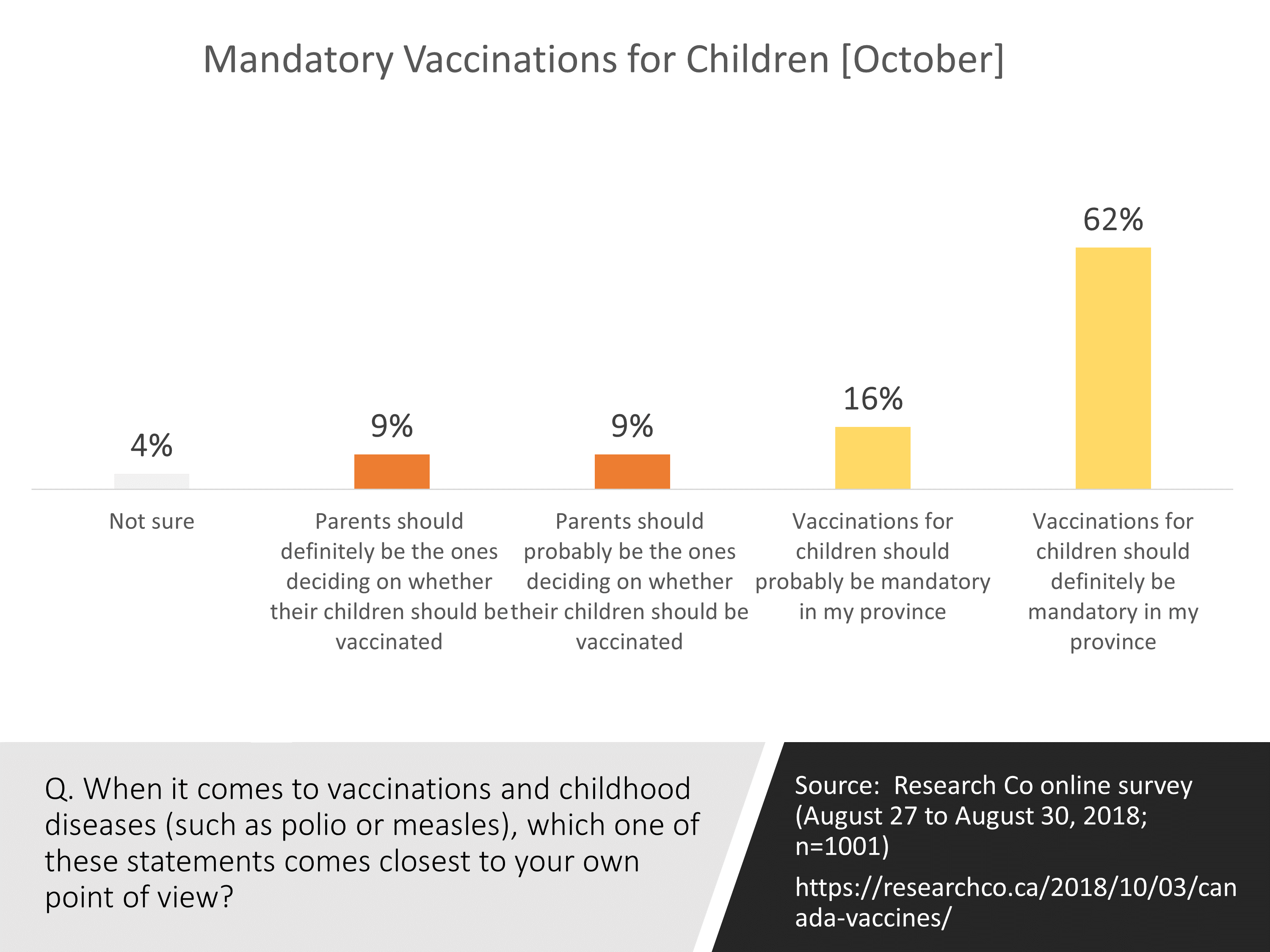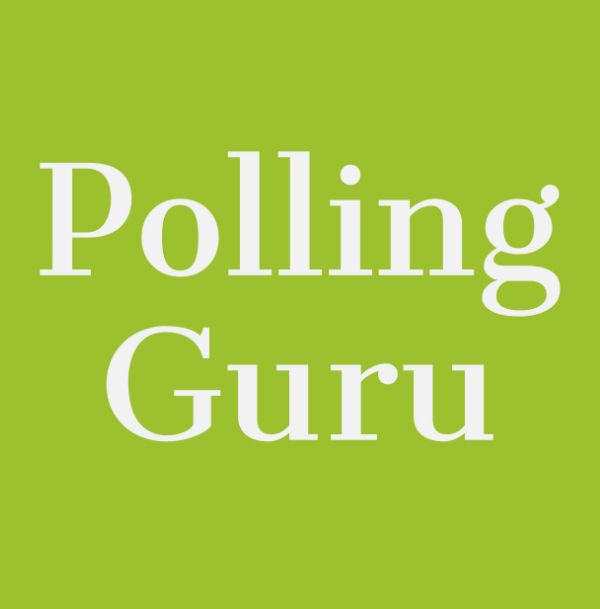A recent Research Co. survey shows that Canadians are not fully supportive of mandatory vaccination of children when it comes to childhood diseases like polio and measles. Almost one in five would leave this to parents to decide.
Many childhood diseases were largely eradicated thanks to vaccines. Whole generations have not experienced outbreaks of these diseases. The effectiveness of vaccines is based, in part, on herd immunity. In other words it is important for immunization to cover a very large proportion of the population to be effective. For measles 90-95% of the population needs to be immunized. Thus mandatory vaccination, especially among children who are more vulnerable, is viewed as necessary by experts.
Just under 8 in 10 Canadians think vaccinations for children should be mandatory. If all of the 18% who think parents should decide opted to not immunize their children, Canada would no longer have herd immunity for many diseases. Of course, not all of those who want to leave it to parents would opt to not immunize children (many do not have children to immunize at this time).
The Research Co. question invites respondents to think about parental autonomy as a value. The question is not just about immunization. If you value autonomy you may choose the parental choice question even if you believe in immunization. Those opposed to vaccines may use this argument so it is interesting to see the level of support for this position. Other ways of framing the question could generate other results.

Vaccination Worries
The lack of universal support for mandatory vaccination is not just because people believe that parents should be making the decision. Twenty-three per cent of Canadians think there is at least probably a connection between childhood vaccines and autism in children. Young people are most likely to think there is connection (32% of those under 35). Only 53% are confident there is no link.
Questions posed in the positive get some positive response due to the tendency for people to be swayed by the authority embedded in the positively framed question (why ask about something that is not true). The probably view may be higher than the true value because of this.

Implications
The motivation for the public release of the poll by Research Co. is not evident. No sponsor was identified and there is no active national debate. It is, however, an interesting window on the issue.
The public is not fully committed to a mandatory vaccination policy which is necessary to be effective. Policy makers may believe that there is enough support for immunization that they do not need to change people’s minds but public skepticism is potentially dangerous. It feeds an irrational belief that we know what is best and that the state is not being forthcoming about the facts. All of which undermines sound policy making and can fuel populist angst.
Source: Research Co online survey (August 27 to August 30, 2018; n=1001). Release

